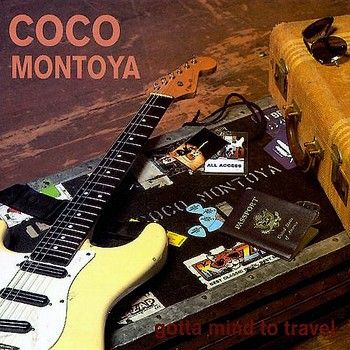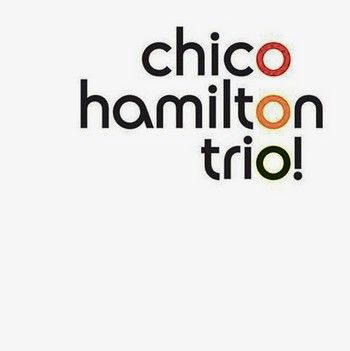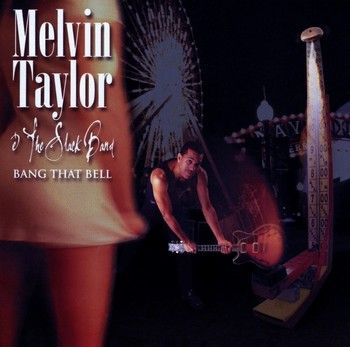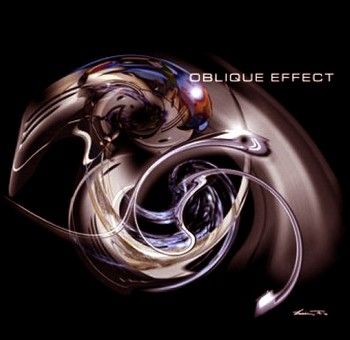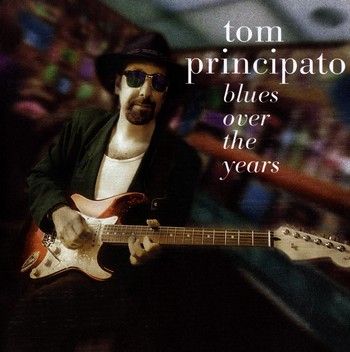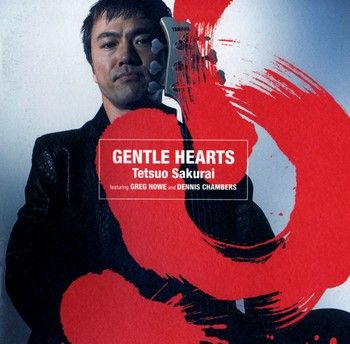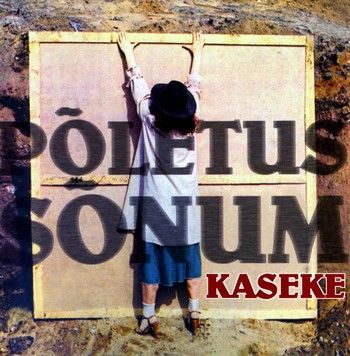
Kaseke - Poletus & Sonum - 2000 - Boheme Music
Nine years after the restoration of Estonia's independence, most of the best progressive rock and fusion works of its past saw the digital light of day with either their re-release on CD or availability in a compilation CD. However, the most notable omission is the country's progressive fusion masters, Kaseke. Finally, in 2000, this gap has been filled. During the early 1980s, when Soviet censors were on the prowl, Kaseke gained a strong and loyal audience for its aggressive yet understandable instrumental tracks. Several of its members were with the punk band Propeller (in fact, Kaseke is basically the last configuration of the punk band sans vocals), which Soviet authorities banned for causing youth to rise up against totalitarianism. However, music spoke loudest at the time, and the fusion supergroup — of which Kaseke certainly is, putting together members of topnotch progressive rock bands like In Spe, Ruja, Mess — became a classic. The two Kaseke releases have been long sought-after collectors’ items throughout the world (though often mistakenly labelled as 'Latvian' due to the vinyl being pressed in Riga, Latvia!). Kaseke began in 1980, though after changing some members and getting rid of vocal performers, the band immediately dominated the fusion scene. Led by the well-known jazz keyboardist Tont' Naissoo, pieces such as the title track on its 1981 debut EP “Sõnum”. (The News) took on the cool flavour of the world jazz/fusion scene at the time. The slick keyboard playing of Naissoo is certainly counterbalanced by the twin guitar attack of Riho Sibul (who also played at the time with the budding In Spe) and Ain Varts (from Propeller), which brought an extra dimension into the pieces. The guitars are well complemented by the delicate flute of Peeter Malkov (also from Propeller), bringing a touch of exoticness and left-field to the pieces. The rhythm section serves as a strong backbone, with bassist Priit Kuulberg (of Ruja fame) as steady as ever and drummer Andrus Vaht (of both Ruja and Mess fame) showing off his amazing dexterity and creativity behind the kit. The bluesy “Kala Jälg Vees”, (A Fish's Trail in the Water) is a highlight, showing off guitarist Sibul's emotional best, while “Laupäeval Koos Isaga” (Saturday Together with Dad) shows the melodic playing of Varts. However, it was the 1983 release of the only full length album by Kaseke, "Põletus" (Burning), that really put the band on top. Now with diverse influences and writers for the nine pieces on the LP, the music took on a more adventurous feel. Some pieces were still jazzy, but some pushed fully into the realm of progressive rock. The twin guitar attack of Sibul and Varts played a strong role in the music, which can be distinctly recognised and appreciated. The flute served as a wonderful balancing tool alongside the ever-strong rhythm section — with drummer Vaht showing some of his best stuff throughout the LP. One reason for the diverse feel in the LP is the use of several keyboard players, who in turn penned many of the different tracks on the album. This is a great example of the camaraderie among Estonian musicians, as they see each other more as colleagues than competitors. For this reason, the music community remains tight today. Former keyboardist Naissoo contributed the jazzy “Pikk Päevatee” (Long Way to Go), while In Spe frontman (and one of the best-known classical composers in the world today) Erkki-Sven Thar brought his progressive rock masterpiece “Põlenud Maa”, (Burnt Land). Another well- known pianist, Olav Ehala, contributes the quirky but fun “Elevantsi Hirmulaul” (Little Elephant's Song of Fear), while prog master Margus Kappel (instrumental in bringing Ruja into the progressive rock forefront) brought his keyboard skills in the opening “Elevant” (Elephant). The other keyboards is played by the fantastic Mart Metsala (also of In Spe), who brought a more progressive rock feel to the previously jazzy Kaseke. The most fantastic track on the LP is the aggressive “Näotused” (Unsightlinesses), written by guitarist Sibul. This piece shows off the amazing skills of the musicians — especially of the two guitarists. You can really hear how their two styles, although quite different, complement each other perfectly. Having heard live recordings of this and other pieces played to absolute perfection, it shows how truly talented these musicians are.Sadly, the band all but dissolved into different projects, as do many other supergroups, in 1984. However, the music lives on in its two vinyl releases, which with this re-release, finally takes its rightful place alongside other great progressive fusion CDs. Today, nearly 20 years later, several of the members of Kaseke are still breaking ground in music. Guitarist Riho Sibul remains the top guitarist in Estonia, and his progressive blues band Ultima Thule has merged some difficult elements — such as blues, prog rock, fusion — together into a fine product. Ain Varts is also continuing the exploration of guitar sounds, recently collaborating on a project with world- famous church organist Andres Uibo. Tiinu Naissoo is one of the most sought-after jazz pianists in Estonia. Overall, Kaseke is one of the best progressive fusion projects to ever come out of Northern Europe. It was truly a phenomenon of the early 1980s, to play as technically difficult but sonically fluid material that one can push themselves to doing. An absolute gem, a must for any fan of jazz, fusion, and/or progressive rock. – from “Kaseke — Estonia's Progressive Fusion Masters” © Mel Huang, Battles Editor, Central Europe Review (http://www.ce-review.org) Also, Owner, Estonian Progressive Rock Website (http://www.uninet.ee/—mel/estprog) June 2000 - From the album’s liner notes
KASEKE is considered Estonia's finest progressive-fusion band. They started playing around 1980, and released their only full-length album in 1983 (which quickly became a collector's item). Their style of fusion is clean, and influenced mostly by the late-seventies American-fusion scene. In fact, many tracks here have a radio-friendly sound. Yet the music has a subtle complexity to it that will appeal to prog fans more so than the casual jazz listener. The thing that struck me, while listening to Kaseke, was that the band sounded incredibly modern. I would have never guessed that most of the music came out in 1983. Even the keyboards sound like that came out of the factory around 1998. And the keyboardists (there are several that play on the album) remind me a bit of Jordan Rudess's work on the LIQUID TENSION EXPERIMENT albums. The keyboard playing is not as complex, of course, but the choice of notes are similar to Jordan's. The listener will also notice the nice dual-guitar work by Ain Varts, and Riho Sibul who are known in Europe for their skills. Overall, this CD will please most progressive-fusion/jazz fans. Don't expect Iceberg #2, but the music here is of high quality. Review by & © Steve Hegede PROG REVIEWER ****/5 Posted Sunday, March 21, 2004 © Prog Archives, All rights reserved http://www.progarchives.com/album.asp?id=4944
Two albums on one CD from the great 1980’s Estonian fusion band, Kaseke. Adam Garrie in his article on music in the Soviet Union and the Soviet Estonia, @ http://estonianworld.com/culture/when-tallinn-first-rocked-the-world/ says that “In the 1970s, it is fair to say that after Britain, Holland and Italy, Estonia probably produced the most authentic progressive rock bands in the world.” The problem is that in the ‘70’s progressive rock music in these regions was not being heard globally. It is absolutely fantastic that albums like “Poletus” and “Sonum” are being re-issued on CD over the last 15 years or so, and prog. music fans are now noticing what they had been missing when bands like Jethro Tull, King Crimson, Pink Floyd, Yes, Genesis, ELP and many more were in the spotlight. You don’t have to be a jazz or progressive rock fan to enjoy this album. “Poletus & Sonum” is a top-notch instrumental progressive jazz rock/fusion album and HR by A.O.O.F.C. Listen to more of this album @ http://www.melodig.com/release/13602818/ and read a good article about progressive rock music under the old Soviet regime @ http://estonianworld.com/culture/when-tallinn-first-rocked-the-world/ [All tracks @ 320 Kbps: File size = 133 Mb]
TRACKS / COMPOSERS / ORIGINAL ALBUM
1 Elevant/Elephant - Margus Kappel 4:17 [Põletus]
2 Valhalla/Valhalla - Ain Varts 4:14 [Põletus]
3 Elevantsi Hirmulaul/Little Elephant's Song Of Fear - Olav Ehala 3:43 [Põletus]
4 Salajane Rõõm/Secret Joy - Mart Metsala 3:46 [Põletus]
5 Põletaja/Con Fuoco - Ain Varts 3:36 [Põletus]
6 Tantsija/Dancer - Mart Metsala 5:48 [Põletus]
7 Näotused/Unsightliness - Riho Sibul 4:47 [Põletus]
8 Pikk Päevatee/Long Way To Go - Tõnu Naissoo 4:45 [Põletus]
9 Põlenud Maa/Burnt Land - Erkki-Sven Tüür 3:42 [Põletus]
10 Introduktsioon/Introduction - Tõnu Naissoo 2:05 [Sõnum]
11 Sõnum/The News - Tõnu Naissoo 4:35 [Sõnum]
12 Kala Jälg Vees/Fish's Trace In The Water - Riho Sibul 3:30 [Sõnum]
13 Laupäeval Koos Isaga/Together With Dad On Saturday - Ain Varts - 4:45 [Sõnum]
N.B: Tracks 10-13 originally appeared on Kaseke's 1981 "Sõnum" EP: Tracks 1-9 originally appeared on Kaseke's 1983 "Põletus" LP
MUSICIANS
Ain Varts, Riho Sibul - Guitar [Sõnum & Põletus]
Priit Kuulberg - Bass [Sõnum & Põletus]
Tõnu Naissoo - Electric Piano, Keyboards [Sõnum], [Keyboards on Track 8 on Põletus]
Mart Metsala - [Keyboards on Track 1 on Põletus]
Olav Ehala - [Keyboards on Track 3 on Põletus]
Erkki-Sven Tüür - [Keyboards on Track 9 on Põletus]
Andrus Vaht - Drums [Sõnum & Põletus]
Peeter Malkov - Flute [Sõnum & Põletus]
BIO
Kaseke is one of the best known Estonian progressive rock bands outside of its borders. For one thing, its two vinyl releases are valued collectors items around the world. However, the rare collector that had the vinyls also knew that Kaseke was among the best prog-fusion bands during the early 1980s anywhere in the world. The root of the band actually came out of the punk movement of the turn of the decade into the 1980s. The popular punk band Propeller, which featured some of the best prog musicians from bands like Ruja and others, became the voice of teenage angst in Estonia -- which obviously made Soviet authorities nervous. Propeller played a form of punk that was very national and quite interesting. However, authorities soon caught up to the band and banned it. In essence, Kaseke sprung from the ashes of Propeller, as members of its late formation formed Kaseke in the autumn of 1980. Bassist Priit Kuulberg (also of Ruja fame), guitarist Ain Varts, drummer Ivo Varts (also of Ruja fame), and flautist Peeter Malkov made up the early formation of Kaseke (which, essentially, was Propeller sans vocalist Peeter Volkonski). The line-up was very short-lived, as drummer Ivo Varts was drafted into the Soviet army. However, a new line-up, led by jazz keyboardist Tõnu Naissoo, soon emerged as one of the best fusion projects in the country. Naissoo brought a jazzy feel to the band's music, which was augmented with the fabulous drumming of ex-Ruja and ex-Mess drummer Andrus Vaht. Rounding out the first big line-up was former Propeller and In Spe guitarist, the fabulous Riho Sibul. The twin guitar attack of Sibul and Ain Varts soon became a Kaseke trademark. The band's popularity grew, resulting in the release of an EP Sõnum in 1981. The excellent four-song EP featured the excellent title track and "Laupäeval koos isaga" among others. The tracks are catchy in an early '80s fusion way, and featured some excellent playing by everyone involved. The line-up changed at the end of the year, as the driving force of the music, keyboardist Tõnu Naissoo, left the band. In came In Spe keyboard whiz Mart Metsala, and the direction of the band turned further towards prog and away from jazz. However, the sound remained that of a prog-fusion, led by the unique twin guitar attack of Sibul and Varts. The band became more and more popular with gigs, and this led to the release of the collectors item Põletus in 1983. This full-length LP features a wide assortment of tracks, some featuring guest keyboardists as well: In Spe's Erkki-Sven Tüür (for the fabulously proggy "Põlenud maa"), ex-keys player Tõnu Naissoo (for the jazzy "Pikk päevatee"), and Olav Ehala (for the catchy "Elevanti hirmulaul"). Two of the most interesting and aggressive songs -- "Põletaja" and "Näotused" -- feature the two guitarists at their very best, with driving lines and frantic duels. Absolutely fabulous playing by everyone. The band gigged frequently, including the large Tartu Rock Festival every summer in Estonia's second city. However, the band ran its course in 1984 and split up. Many of the band's members remained active in the music scene, taking part in bands like In Spe and VSP Projekt. However, to its legion of fans -- especially in south Estonia - Kaseke remains an institution. One bit of good news recently. In 2000 Czech/Russian record company Boheme Music released a compilation of all of the band's material, taken from both Sõnum and Põletus. Finally, the world can hear how truly talented these musicians are, and how powerful these pieces from some two decade ago are still today. © http://home.uninet.ee/~mel/estprog/proge/kaseke.html


